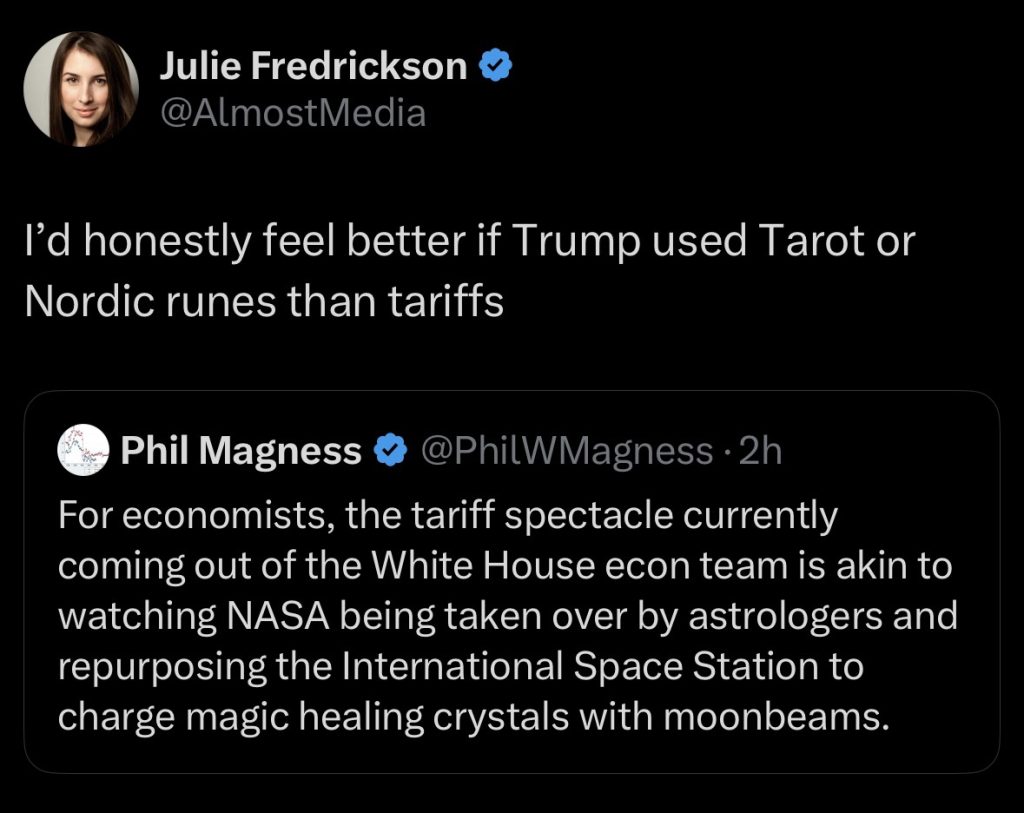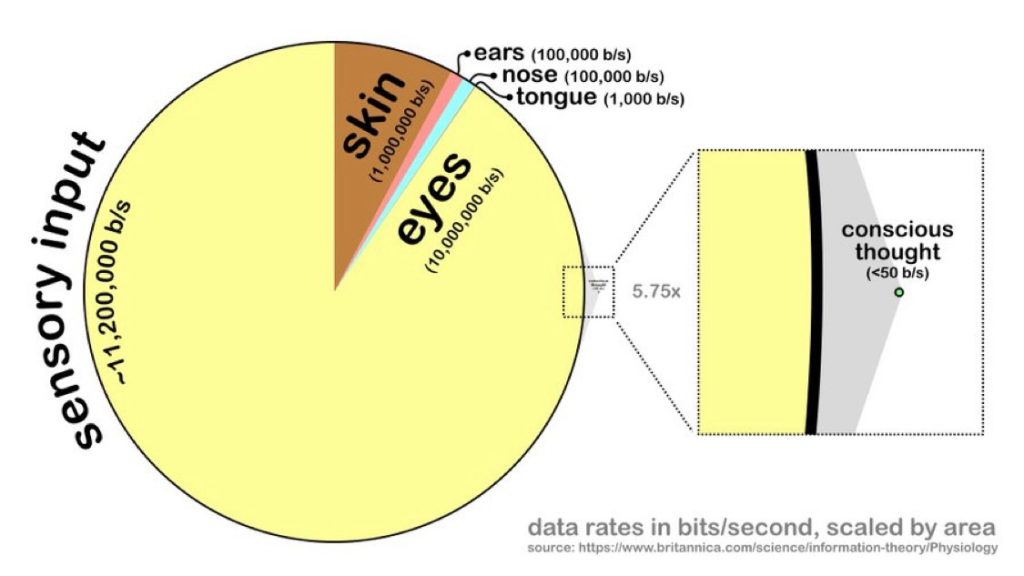Americans are mere days away from the dreaded April 2nd tariff reveal and the mood could not be more sour.
If only America was a few good zoning reform bills further along. Then we could house 700 million more people and our Abundance bro moderate liberals would be in a better mood. Alas it’s easy dunking for most of us when Matty Yglesias weighs in late to the party

I’ve spent the last half decade preparing for a more chaotic world. How it would play out and what would be the driver was anyone’s guess.
I made plenty of bets that energy, compute, and decentralization would be the way in a multi-polar world, but I don’t want to count America out just yet. That’s why we made our last stand in Montana.
“God has a special providence for fools, drunkards, and the United States of America.” Otto von Bismarck
The amusing bit of Trump’s mercantilism is literally only he and a small band of trade administration aids actually think this is sensible economic policy. While I know a tariffs bro personally and I appreciate him as a friend they know I think this approach is dubious.

You know it’s bad when even the king of outlier events Nassim Nicholas Taleb is fretting for Treasury Secretary Bessent. Who is at least qualified to manage the a massive currency crisis.
“He probably gets that whether tarifs make or don’t make sense is irrelevant: any ABRUPT introduction of steep tariffs must lead to a CASCADING & GENERALIZED price action.”
We are damned if you do not because tariffs are the wrong tool for this moment (though most of them are) but because markets like predictable things and cascading price action everywhere makes us dizzy.
Rather like the drunks and the fools mentioned by Bismarck, we’d better hope providence provides in this topsy turvy moment.
